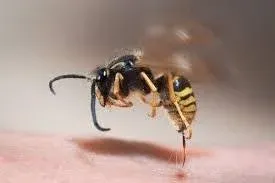Spider bites can be painful, itchy, and alarming, especially if you are unsure about the type of spider that bit you. While most spider bites are harmless and heal within a few days, some may require proper care to prevent infection and reduce discomfort. One of the most effective ways to manage symptoms is by using the best creams and ointments for spider bite relief. These topical solutions can ease pain, minimize swelling, and help the skin heal naturally.
In this guide, we will explore the most recommended creams and ointments, including both over-the-counter and natural remedies, along with tips for safe usage.
Why Creams and Ointments Are Essential for Spider Bite Relief
When a spider bites, venom or toxins may trigger inflammation and itching. In most cases, the body’s immune response causes redness, swelling, and discomfort. Applying topical treatments is crucial because:
They provide fast, localized relief for pain and irritation.
Many contain anti-inflammatory or antihistamine properties.
Some include antibiotic ingredients that prevent infection.
Moisturizing ointments speed up skin repair.
Choosing the right treatment depends on the severity of the bite, your skin type, and whether you prefer medicated or natural remedies.
Best Over the Counter Creams for Spider Bite Relief
Here are some of the top recommended creams you can buy at most pharmacies or online:
1. Hydrocortisone Cream
Hydrocortisone is one of the best creams for reducing swelling and itching. It works by calming the immune response in the skin. For mild spider bites, applying 1% hydrocortisone cream twice daily can provide quick relief.
2. Antihistamine Creams (Diphenhydramine)
Spider bites often trigger itching due to histamine release. Creams containing diphenhydramine help reduce allergic reactions and itching. However, avoid overuse, as excessive application can dry out the skin.
3. Antibiotic Ointments (Neosporin, Polysporin)
If the bite has broken skin or shows signs of minor infection, antibiotic ointments are useful. They protect against bacteria and promote healing. Apply after gently cleaning the bite with soap and water.
4. Lidocaine or Benzocaine Creams
For intense pain, numbing creams containing lidocaine or benzocaine can be very effective. These topical anesthetics temporarily block nerve signals, providing fast relief.
5. Calamine Lotion
Though technically a lotion rather than a cream, calamine is a classic remedy for bites and rashes. It soothes itching and leaves a cooling effect on irritated skin.
Natural Ointments and Remedies for Spider Bites
For those who prefer natural healing methods, there are several plant-based and herbal options:
1. Aloe Vera Gel
Aloe vera is cooling, soothing, and antibacterial. Applying fresh aloe gel helps calm redness and promote healing.
2. Tea Tree Oil Ointments
Tea tree oil has strong antimicrobial properties. When diluted properly in a carrier oil or ointment, it can prevent infection and reduce swelling.
3. Honey-Based Balms
Honey is a natural antibacterial and anti-inflammatory agent. Manuka honey ointments, in particular, help with wound healing and swelling.
4. Turmeric Creams
Turmeric is known for its anti-inflammatory and antiseptic benefits. Topical creams containing turmeric extract can aid in reducing redness and discomfort.
How to Use Creams and Ointments Safely
To get the best results from any cream or ointment for spider bite relief, follow these steps:
Clean the area with mild soap and water before applying treatment.
Pat dry gently to avoid irritation.
Apply a thin layer of cream or ointment directly over the bite.
Avoid scratching, as it can worsen inflammation or lead to infection.
Reapply as directed, usually 2–3 times a day.
Monitor symptoms—if swelling spreads, pain worsens, or you feel unwell, seek medical care immediately.
When to See a Doctor
While most spider bites are mild, there are situations where medical attention is necessary. Seek professional help if you experience:
Severe pain that doesn’t improve with topical creams
Rapidly spreading redness or pus discharge
Fever, chills, or muscle cramps
Signs of necrosis (skin tissue breakdown)
A suspected bite from a venomous spider like a black widow or brown recluse
In these cases, creams and ointments may help with initial symptoms but won’t replace professional treatment.
Final Thoughts
Using the best creams and ointments for spider bite relief can make a significant difference in recovery time and comfort. From hydrocortisone creams to natural aloe vera gels, there are plenty of options to suit individual preferences. Always start with cleaning the bite area, apply the right topical treatment, and monitor symptoms carefully.
Most importantly, remember that while topical treatments provide fast relief, severe bites should always be evaluated by a healthcare professional. By combining smart home care with medical guidance when needed, you can ensure safe and effective healing from spider bites.






